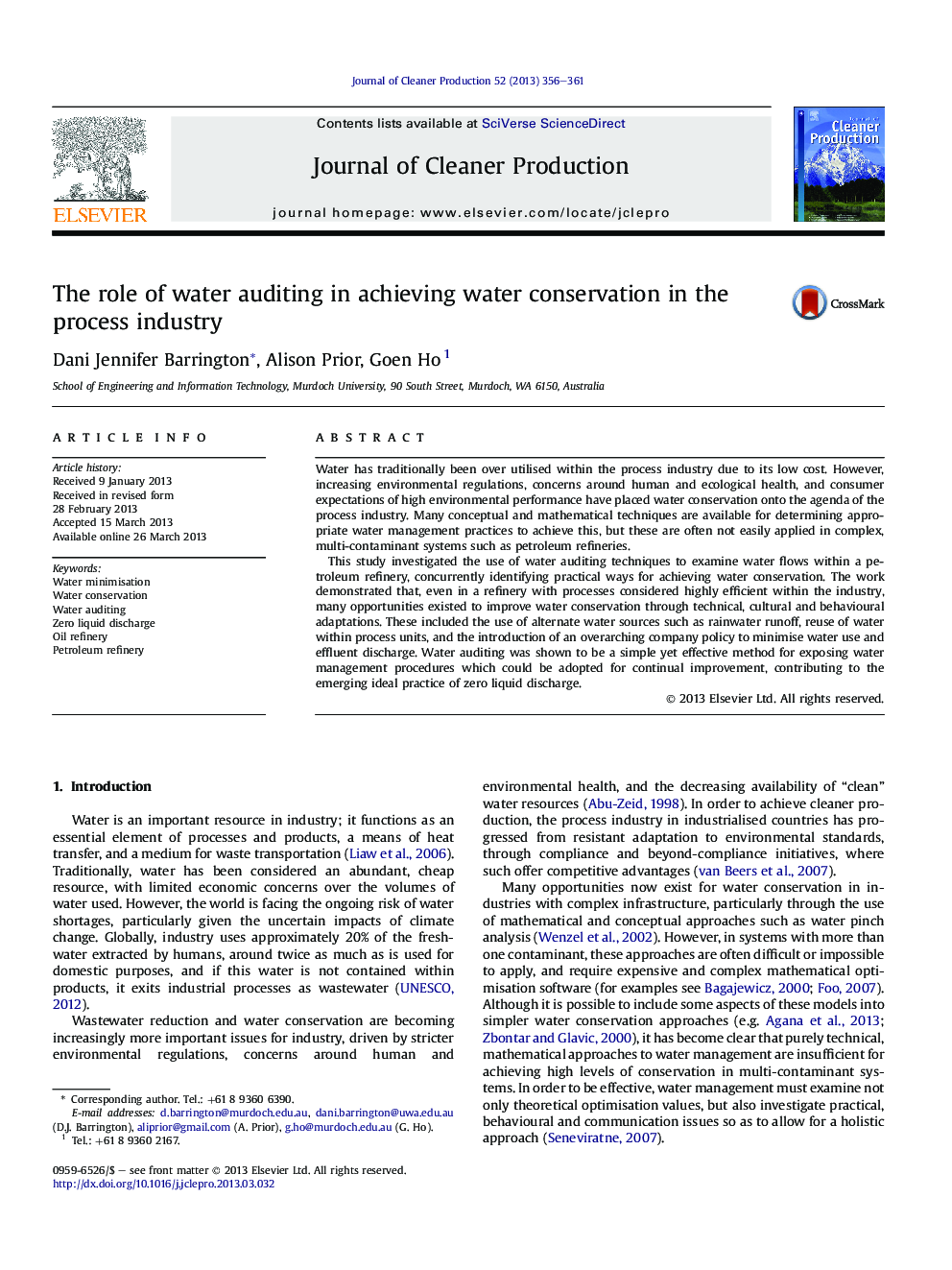| Article ID | Journal | Published Year | Pages | File Type |
|---|---|---|---|---|
| 1745254 | Journal of Cleaner Production | 2013 | 6 Pages |
•Water auditing in refineries can be divided into process, utility and domestic.•Water auditing indicates areas for conservation, such as alternative water sources.•Water conservation requires technical, cultural and behavioural adaptations.•Water auditing contributes to achieving zero liquid discharge.
Water has traditionally been over utilised within the process industry due to its low cost. However, increasing environmental regulations, concerns around human and ecological health, and consumer expectations of high environmental performance have placed water conservation onto the agenda of the process industry. Many conceptual and mathematical techniques are available for determining appropriate water management practices to achieve this, but these are often not easily applied in complex, multi-contaminant systems such as petroleum refineries.This study investigated the use of water auditing techniques to examine water flows within a petroleum refinery, concurrently identifying practical ways for achieving water conservation. The work demonstrated that, even in a refinery with processes considered highly efficient within the industry, many opportunities existed to improve water conservation through technical, cultural and behavioural adaptations. These included the use of alternate water sources such as rainwater runoff, reuse of water within process units, and the introduction of an overarching company policy to minimise water use and effluent discharge. Water auditing was shown to be a simple yet effective method for exposing water management procedures which could be adopted for continual improvement, contributing to the emerging ideal practice of zero liquid discharge.
